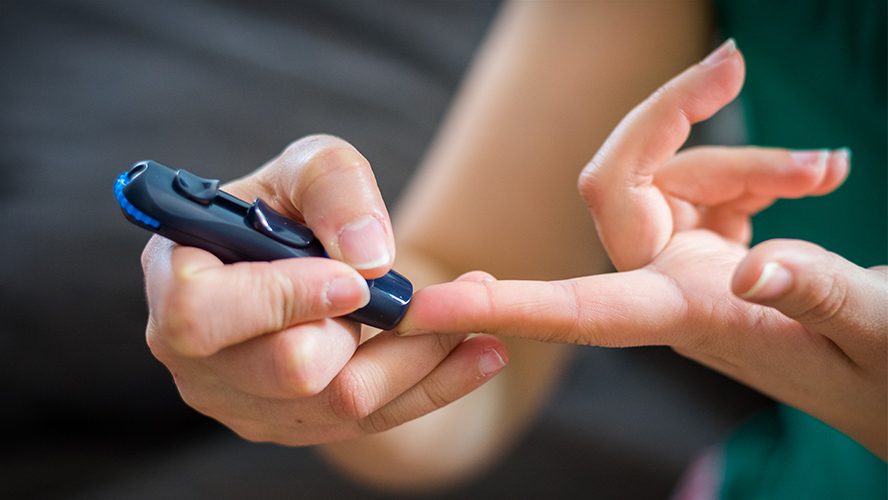
Researchers at UHN are part of a team evaluating a potential new therapy for people with long-standing and hard-to-manage type 1 diabetes (T1D) who experience frequent, severe low blood sugar events. Results from an early-stage clinical trial, recently published in the New England Journal of Medicine, show promise for an approach to restore insulin production using stem cell–derived islets—clusters of cells in the pancreas that produce and secrete hormones.
More than 8 million people worldwide live with T1D, where the body's immune system destroys insulin-producing cells in the pancreas. Managing T1D remains difficult due to specific insulin therapy and glucose monitoring requirements. Even with the best tools, the disease can lead to serious long-term health complications.
A multi-site trial that includes UHN as one of the clinical sites has investigated a new therapy called zimislecel, which uses lab-grown insulin-producing islets derived from pluripotent stem cells—cells that can develop into any tissue type. These cells are infused into the liver through the portal vein, a blood vessel that carries blood from organs in the abdomen to the liver. Participants also received immunosuppressive medications to help prevent rejection of the transplanted cells.
Dr. Trevor Reichman, Surgical Director of the Pancreas and Islet Transplant Program at UHN’s Ajmera Transplant Centre and Clinician Investigator UHN, is the study’s lead Canadian author.
The study included 14 adults with longstanding T1D who had impaired ability to perceive the onset of hypoglycemia and recurrent severe hypoglycemia. Hypoglycemia occurs when blood sugar drops too low and can cause symptoms such as confusion, dizziness, seizures, or loss of consciousness. Severe cases require help from another person and can be life-threatening.
Before treatment, none of the participants produced measurable insulin on their own. One year after a single infusion of zimislecel, all participants who received the full dose experienced improved blood sugar control and no severe hypoglycemic events. Ten of these participants (83%) were insulin-independent at the one-year mark. Most reported side effects were mild or moderate and consistent with those seen in transplant recipients.
While these results are early and based on a small group, they suggest that stem cell–derived islets may help restore natural insulin production and improve safety for people with high-risk T1D. Ongoing studies will provide more insight into the long-term effectiveness, safety, and accessibility of this approach. The study is now in Phase 3, which will take the total participant number to 50.
UHN continues to play a key role in research that supports the safe and evidence-based advancement of new therapies for diabetes and other chronic diseases.
Dr. Trevor Reichman, Clinician Investigator at UHN and Associate Professor in the Department of Surgery at the University of Toronto, is the first author of this study that includes investigators in the VX-880-101 (zimislecel) FORWARD Study Group.
This study was funded by Vertex Pharmaceuticals and supported by UHN Foundation.
Reichman TW, Markmann JF, Odorico J, Witkowski P, Fung JJ, Wijkstrom M, Kandeel F, de Koning EJP, Peters AL, Mathieu C, Kean LS, Bruinsma BG, Wang C, Mascia M, Sanna B, Marigowda G, Pagliuca F, Melton D, Ricordi C, Rickels MR; VX-880-101 FORWARD Study Group. Stem Cell-Derived, Fully Differentiated Islets for Type 1 Diabetes. N Engl J Med. 2025 Jun 20. doi: 10.1056/NEJMoa2506549. Epub ahead of print. PMID: 40544428.




